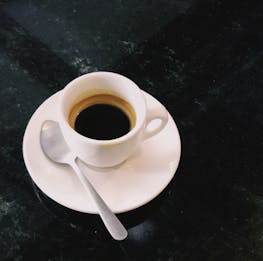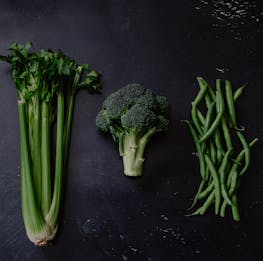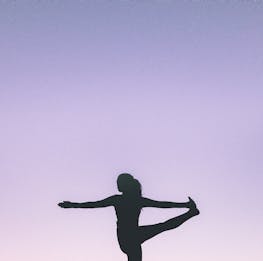The Sleep Revolution Summary
Transforming Your Life One Night At A Time
Are you sick and tired of being sick and tired? We live in a fast-paced time-pressed world, and often it's our sleep that takes the back seat. However, a good night's sleep is one of the most important things we can do.
The Sleep Revolution is an invaluable resource for anyone who wants to understand why sleep is so critical, and what we can do to get more of it.
You might know Arianna Huffington as the co-founder and editor-in-chief of The Huffington Post. However, she is also responsible for pioneering better sleep policies in offices.
The Sleep Revolution is an exploration of sleep, and why it's a cornerstone of a healthier, better life. Huffington examines all things sleep, and shows how a good night's rest isn't just about how we feel when we wake up. Sleep is responsible for improving how we function at work, our physical and mental health, and even our relationships. Similarly, sleep deprivation isn't a symbol of hard work. A lack of sleep is detrimental to our work and productivity, and we need to reframe it as pivotal to effectiveness.
This Briefer summary explains why we all need a wake-up call to sleep more, and how technology and workaholism are to blame when it comes to sleep deprivation. We'll also discover the benefits of getting more sleep so that we perform better at work, school, on the sports field, and even in our sex life. Finally, we'll learn some insightful ideas on how to boost our sleep quality and quantity.
A Wake-Up Call
As we know from books such as Eat, Move, Sleep, and Why We Sleep, sleep is a critical element of our well-being. Getting seven to eight hours of sleep at night makes everything in our lives easier. We meditate better, eat better, exercise better, make wiser decisions, and are able to connect more deeply to ourselves and others.
For Arianna Huffington, the wake-up call was when she found herself lying in a pool of blood on the floor of her office. She uses it as a cautionary tale on burnout and sleep deprivation. She was so run down and exhausted that she collapsed at her desk, broke a cheekbone, and woke up in a pool of blood. Alongside Huffington's personal experience of sleep deprivation, she realized she wasn't alone. While on tour for her book Thrive, she found that the most popular subject was sleep.
Many people confess they're not getting enough sleep, and that there aren't enough hours in a day. Many of us are frustrated by how difficult it is to wind down, how hard it is to fall asleep, and how staying asleep is often the biggest problem. Since her transformation from sleep deprivation to sleep evangelist, Huffington now believes that sleep is the gateway through which a life well-lived must travel.
In her previous book Thrive, she redefines success and explores philosophical questions about leading a good life. In The Sleep Revolution, she asks what it means to get a good night's sleep and why we form bad habits around it.
The Sleep Crisis
On average, how much sleep are you getting?
Many of us think that seven hours is enough, but neglecting sleep is very unhealthy. Without sleep, we can't be productive. Research shows that more than 40% of Americans get less than the recommended minimum of seven hours of sleep per night.
If you type 'Why am I' into Google, it predicts 'Why am I so tired.' The global zeitgeist is perfectly captured in these five words. And we usually Google these words late at night, when we should in fact be sleeping.
The Technology Paradox
The paradox is that technology helps us understand sleep, but it deprives us of sleep more often than not.
Despite not getting enough sleep, we certainly like to talk about it. There are nearly 5000 apps that come up when you search sleep in the Apple Store, 15 million photos under "hashtag sleep" on Instagram, 14 million under "hashtag sleepy," and 24 million under "hashtag tired."
We know more about sleep than we did during any other time in history. However, getting enough sleep is becoming harder and harder. The paradox here is that technological advancements show us what happens while we sleep. However, technology is also why our relationship to sleep is so compromised.
According to a sleep survey, 71% of Americans either go to sleep with their phone or sleep next to their phone.
This is problematic because blue light from our electronic screens disrupts melatonin, which in turn disrupts sleep. And it's not just the blue light that causes neurological disruptions to our sleep. Reading social media and news feeds constantly rattles around our brains, making it more difficult to fall asleep and stay asleep.
It's not just technology that's coming between us and a good night's sleep; it's our collective delusion that overwork and burnout are the prices we must pay in order to succeed. We feel that there aren't enough hours in the day, so we look for something to cut down on. Sleep is an easy target.
Workaholism Robs Americans of Sleep
Huffington suggests that there is a 'prevalent cultural norm of sleep deprivation,' which is seen as 'essential to achievement and success.' Furthermore, we're under a 'collective delusion that overwork and burnout are the prices we must pay to succeed.'
Did you know that in the ten years between 1990 and 2000, the annual American workload was upped by a week? The trend is for people to work more hours and vacation less. One survey revealed that 40% of the American workforce hadn't taken a single vacation day in one year.
Sleep deprivation has become an epidemic, and the value of our waking hours has skyrocketed. We're led to believe that "time is money," and this has affected how we perceive sleep. Sleep is not a waste of time; not getting enough sleep is the ultimate time-waster because it means our waking hours are a lot less productive and enriching.
And the consequences of sleep deprivation are fatal. Huffington believes it's time for a sleep revolution. It's time to reclaim sleep and our lives.
Sleeping on the Job
Here's why remote work and napping rooms aren't as foolish an idea as your boss might think.
According to Huffington, sleep is a 100 billion dollar investment return when it comes to work. The more sleep you get, the better the payoff. Jeff Bezos, one of the wealthiest people on the planet, focuses a lot of attention on sleep. He feels he needs eight hours of sleep, and he argues that he makes money not while he sleeps, but because he sleeps.
There's been a growing trend to include nap rooms in the workspace so that employees can catch up on sleep. And despite popular belief, sleeping at work isn't a sign of laziness. Nap rooms were met with skepticism at The Huffington Post's offices in New York. However, now they're one of the most crucial performance boosters. Other major companies like Ben and Jerry's, Zappos, and Nike have followed The Huffington Post's example.
Having enough windows is another way for companies to promote healthy sleep habits. Daylight is more restful, and it does great things to our body clocks. A University of Illinois study revealed the importance of windows. Did you know that employees who work in windowless offices lose an average of 46 minutes of sleep per night because bodies need daylight to maintain their circadian rhythms?
Employees also get better sleep and save travel time if they're allowed to sleep in, which is why offices with flexible hours are very productive. And according to a Stanford University study on workers in China, working from home is even better. Employees who worked from home were up to 13% more productive than those who only worked in the office.
Children Should Sleep In
According to Huffington, 'Asking a teenager to get up at 7 am is like asking me to get up at 4 am.'
The bottom line is that children perform better when they follow their natural circadian rhythms, and that more sleep will result in better results. A 1998 study by Brown University examined the effect of early school start times on children's health. The results showed that children do better when they start school slightly later so that they aren't deprived of sleep. A British high school in North Tyneside even experimented with having classes start at 10:00 a.m. instead of their already relatively late start time of 8:50. Their students ended up scoring much better on tests.
Sleep Together, Stay Together
Partners that sleep next to each other are usually happier and more fulfilled; however, in terms of sex, it's more important that both partners sleep well.
The benefits of sleep extend into our relationships. A 2014 study at the University of Hertfordshire, found that among 1,000 people, couples are happier if they co-sleep and have body contact while being asleep. 85% of those who slept less than an inch apart reported being happy in their relationship.
However, in the end, what's even more crucial is that both partners have good sleep habits, especially when it comes to sex. A 2015 study found that a woman's sex drive is directly correlated to how much deep sleep she gets. Each extra hour leads to a 14% mojo increase, so if you're battling with sexual energy, try to get more hours of restful sleep.
Sleep Gives Athletes the Edge
Professional athletes get paid to perform at their highest level, so they won't waste time on what doesn't work. It's been made abundantly clear that when it comes to peak performance, sleep is the key.
Tom Brady, now in his forties, is arguably the greatest football player in history. Guess what time he goes to bed? 8:30 pm. Roger Federer swears by 11-12 hours, and if he doesn't get this, he feels more prone to injury. When he competes in Wimbledon, he rents two houses, one for him, and one for his young family. This sounds strange, but he does this, so his sleep isn't disturbed. LeBron James shoots for 12 hours of sleep a day when he's training.
So now that we're clued up on why sleep matters, it's time to get some sleep. Here's how we improve our sleep quantity and quality.
How to Sleep Better
Getting good sleep requires a "flip switch" where we switch off from the day, our digital devices, and our internal chatter so that we fall asleep, and more importantly, stay asleep.
There are a few things we can try to do this.
Aim to switch off digital devices thirty minutes before bed. It's ideal to actually do this an hour before bed, but this could be a push for some people, so start slowly. It sounds shocking, but Huffington also advises that we ditch the alarm clock mentality. Did you know that the word "alarm" means an 'anxious awareness of danger'? Is that really how we want to wake up each morning?
We need to aim to go to bed earlier and train ourselves to wake up naturally every morning. To help get into a natural rhythm of getting to bed earlier and waking up naturally, she advises we set a wind-down alarm, not a wake-up one. According to Huffington, one of the most important things we can do to sleep is learning to shut down the night before. By setting a work down alarm on our phones, we can use this as a cue to switch off electronics and connect with ourselves, our family, and finally, our pillow.
Temperature is also important to optimize sleep. Sixty-five degrees is the optimal temperature for getting good sleep. Of course, exercise helps us sleep better, but so does limiting how much caffeine we consume. We should be having our last caffeine hit at 2 pm.
Huffington is an advocate for meditation, especially when it comes to sleep. A Stanford study showed that in a 6-week mindfulness course in meditation, the course participants fell asleep twice as fast as people who did not partake in the course. It took people who didn't participate in the course 33 minutes on average to fall asleep, and it took people who did partake in the course an average of 15 minutes to fall asleep. According to our author, 'Breathing is a favorite "sleep hack" of mine. Counting out a few slow breaths is one of the techniques I use when I'm having trouble falling asleep.. the 4-7-8 method.. you inhale quietly through the nose for four counts, hold for seven counts, and exhale with a whooshing sound through the mouth for eight counts.'
We can also try acupuncture, which is a great natural way to promote sleep. 93% of research confirms that acupuncture is effective in relieving insomnia. We can also turn to medicinal herbs such as lavender. A few drops of lavender oil on a pillow can boost your sleep quality.
Finally, although technology might overstimulate us, it can also help us wind down. Sleep-enhancing tech gadgets like smart sleep monitors and sleep-friendly artificial light are helpful.
In Conclusion
We need to reframe sleep deprivation. It's time for a sleep revolution.
Huffington's wish is that we reclaim our love affair with sleep. She says, 'We need to reclaim our love affair with sleep – not just because sleep makes us better at our jobs (though there's that) and not just because it makes us healthier in every way (there is that, too) but also because of the unique way it allows us to connect with a deeper part of ourselves. Because when we are asleep, the things that define our identity when we're awake – our jobs, our relationships, our hopes, our fears – recede. And that makes possible one of the least discussed benefits (or miracles, really) of sleep: the way it allows us, once we return from our night's journey, to see the world anew, with fresh eyes and a reinvigorated spirit, to step out of time and come back to our lives restored. These two threads that run through our life – one pulling us into the world to achieve and make things happen, the other pulling us back from the world to nourish and replenish ourselves – can seem at odds, but in fact, they reinforce each other. My hope is that by the end of this book, you'll be inspired to renew your relationship with sleep – in all its mystery and all its fullness – and join the sleep revolution, transforming your life and our world one night at a time.'
So, how do you plan to sleep your way to a better life?




